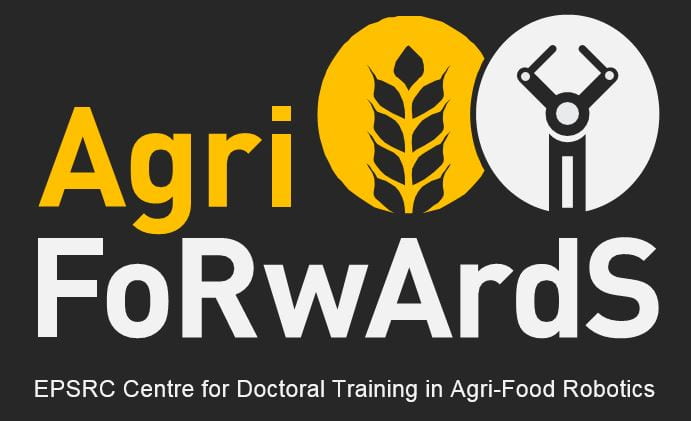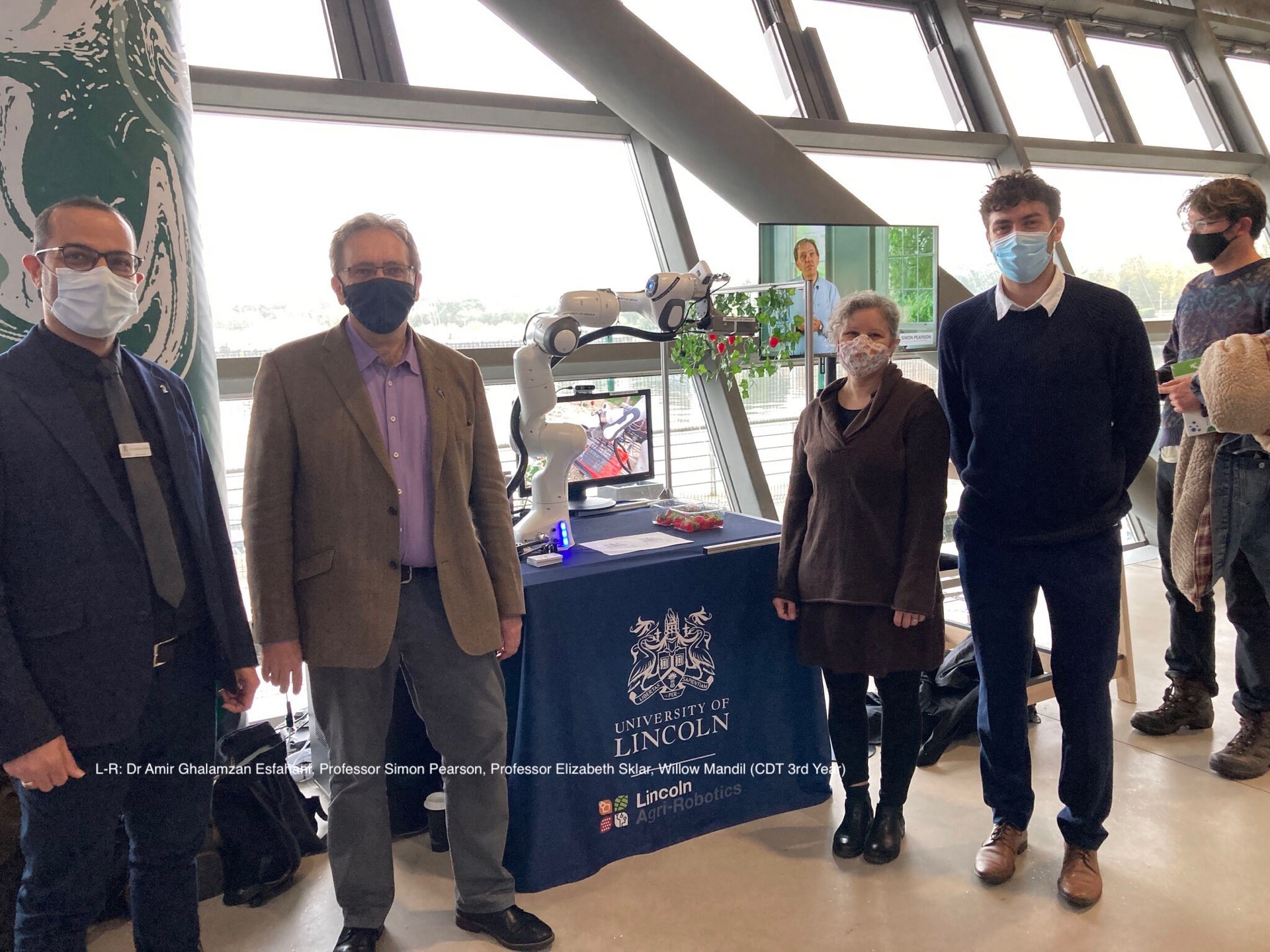The 2021 United Nations Climate Change Conference, more commonly referred to as COP26, was the 26th United Nations Climate Change conference, held at the SEC Centre in Glasgow, from 31 October to 13 November 2021. The COP26 summit brought parties together to accelerate action towards the goals of the Paris Agreement and the UN Framework Convention on Climate Change.
Staff and students, from AgriFoRwArdS and the Lincoln Institute of Agrifood Technology (LIAT), attended COP26 and exhibited at the public-facing ‘Green Zone’ exhibition alongside numerous industry leaders at the forefront of climate science.
Amir Ghalamzan Esfahani (Associate Professor in Robotics), Soran Parsa (Research Fellow) and Willow Mandil (AgriFoRwArdS PhD student) represented the University of Lincoln. They communicated with attendees regarding EPSRC funded research being done within the AgriFoRwArdS CDT, and showcased some of the research being conducted at the University of Lincoln.
The team exhibited ‘Robofruit’, one of many state-of-the-art agri-tech projects, which uses AI and novel picking technology to harvest ripe fruit (as seen in the video here https://www.youtube.com/watch?v=JF4WR6Li-v4). This research has long-term environmental benefits including reduced food waste by better utilising crops It will also help to address labour shortages in the UK, driving the route to larger scaled use of robotics and AI in agriculture.
One of our 1st cohort students, Willow Mandil, took the trip to Glasgow and said: ‘Visiting Cop26 was an informative experience. We demonstrated how robotics and AI might help transform the agrifood system towards a more sustainable future. From school children to Members of Parliament, many were interested in the potential for sustainable agriculture through automation. Engaging in conversation with different members of our society was eye opening, I learnt as much from them as they did from me. We had a lot of talks with vertical farmers, who were interested in how automated harvesting can tessellate with their systems, I think this could be a fascinating direction for automated harvesting and AI applications in the future.’
With an estimated 37% of the world’s greenhouse gasses being produced by the agri-food industry, the COP26 exhibition showcased various field activities tackling this issue – including agri-forestry, robotic harvesting and crop care as well as packaging, digitalization and the employment of artificial intelligence. The UK Government selected the University of Lincoln to share with COP26 its cutting-edge robotics and artificial intelligence (AI) technology.
The University of Lincoln has one of Europe’s largest academic research centres for agri-robotics. Research carried out by LIAT, and the AgriFoRwArdS CDT, aims to drive industry sustainability by addressing labour shortages, the need for global food production and to reduce the environmental impact of the farming sector.
Dr Amir Ghalamzan-Esfahani, Associate Professor in Robotics at the University of Lincoln, who showcased Robofruit, said: “We are demonstrating to the world how robotics and automation are shaping the future of UK and international farming and food production. The University of Lincoln is at the forefront of the UK’s agri-tech and agri-food developments, with our research and teaching supporting innovation and developing workforce skills alongside partners across our food and farming sectors. Together, we aim for a net zero emissions across the industry.”
For more information on the research being done within AgriFoRwArdS and LIAT, please visit the respective websites.

